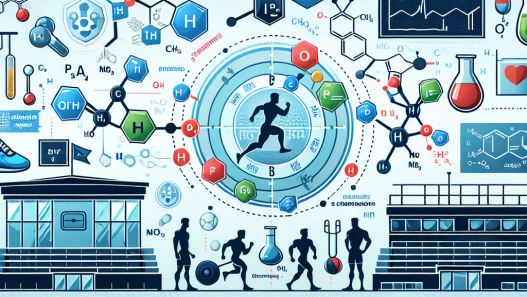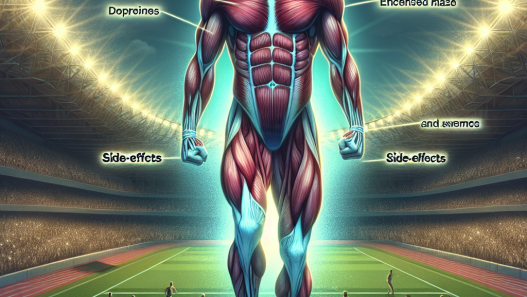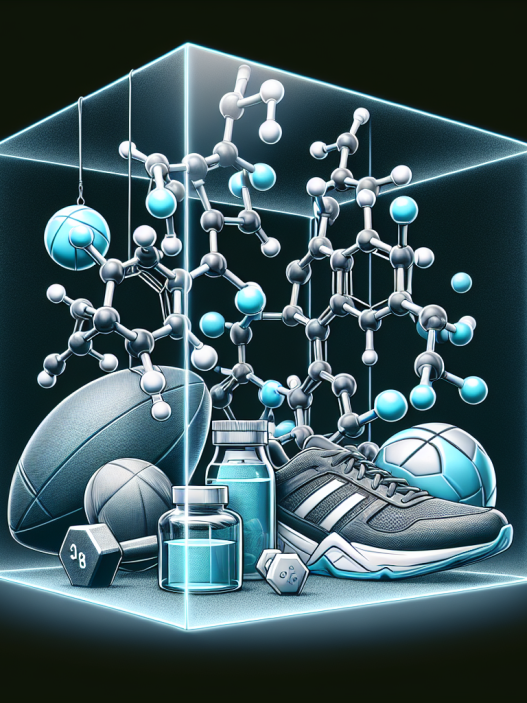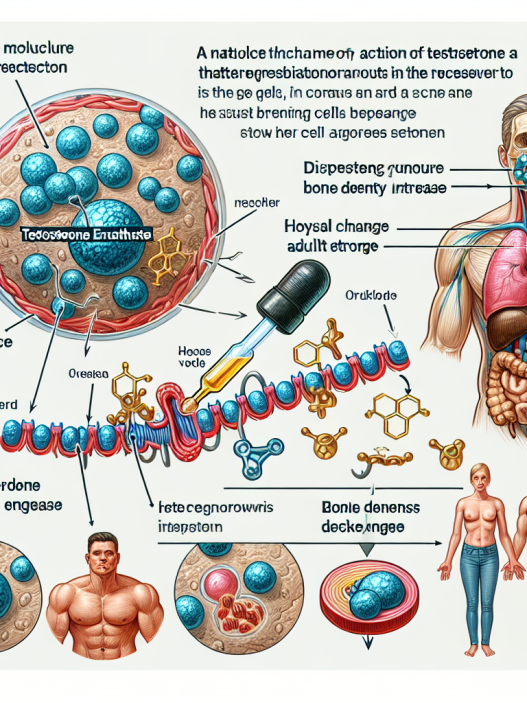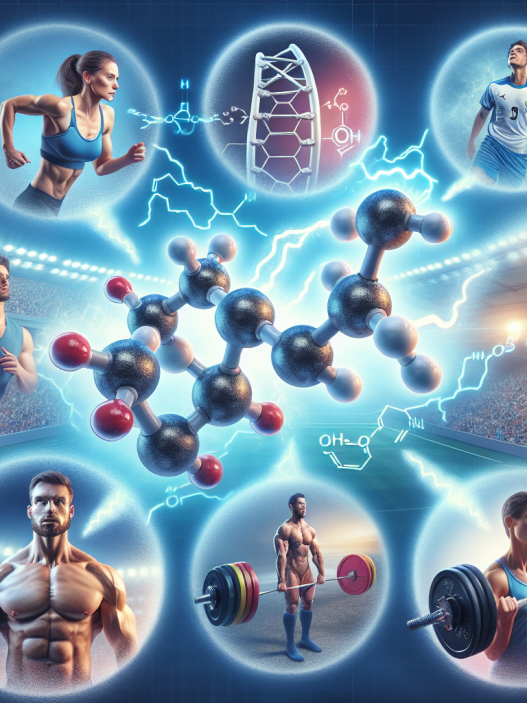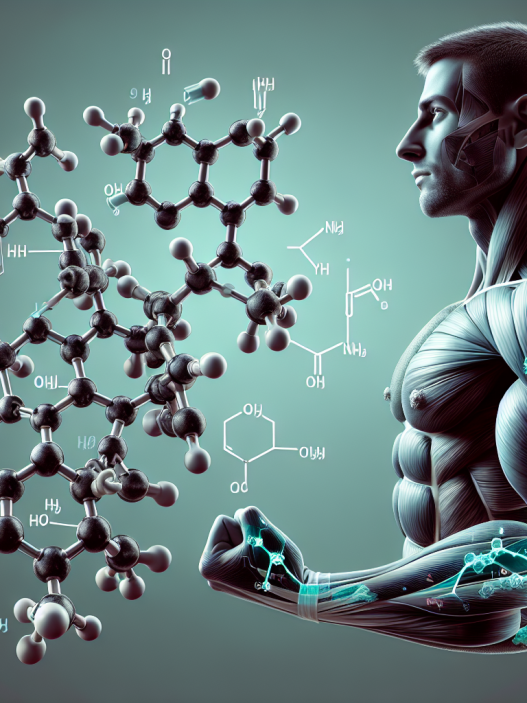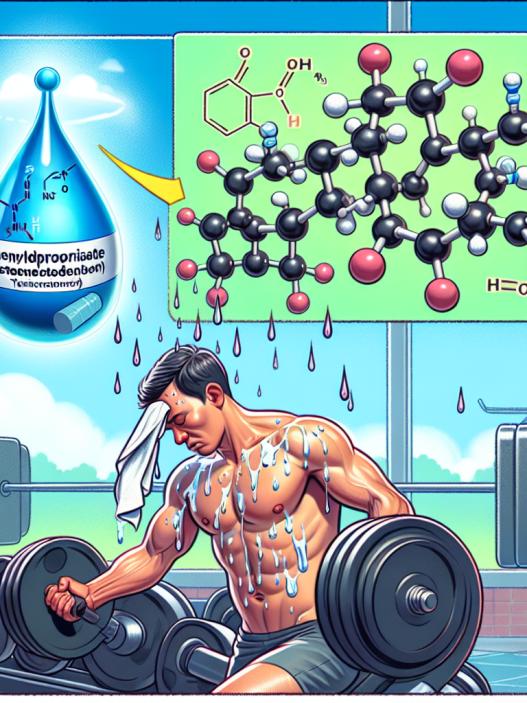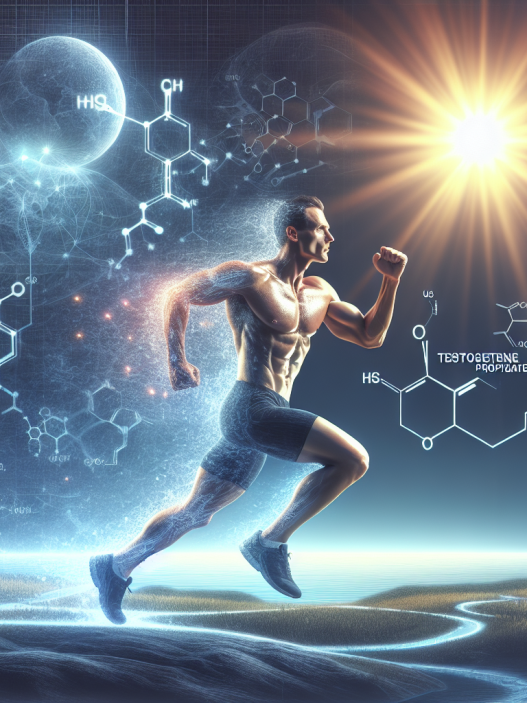-
Table of Contents
Maximizing Sports Performance with Testosterone Cypionate
Sports performance is a highly competitive field, where even the smallest advantage can make a significant difference. Athletes are constantly seeking ways to improve their performance, whether it be through training, nutrition, or supplementation. One substance that has gained attention in the sports world is testosterone cypionate. This synthetic form of testosterone has been shown to have numerous benefits for athletes looking to maximize their performance. In this article, we will explore the pharmacokinetics and pharmacodynamics of testosterone cypionate and how it can be used to enhance sports performance.
The Role of Testosterone in Sports Performance
Testosterone is a naturally occurring hormone in the body that plays a crucial role in the development and maintenance of male characteristics. It is also essential for muscle growth and strength, making it a key hormone for athletes. Testosterone levels can be influenced by various factors, such as age, genetics, and lifestyle. In sports, testosterone levels can also be affected by training intensity and competition stress.
Studies have shown that higher levels of testosterone can lead to increased muscle mass, strength, and power, all of which are essential for athletic performance (Bhasin et al. 2001). This is why many athletes turn to testosterone supplementation to enhance their performance. However, the use of testosterone in sports is a controversial topic, with many organizations banning its use due to concerns about unfair advantages and potential health risks.
Pharmacokinetics of Testosterone Cypionate
Testosterone cypionate is a synthetic form of testosterone that is commonly used in medical settings to treat conditions such as hypogonadism and delayed puberty. It is also used off-label by athletes to increase muscle mass and strength. Testosterone cypionate is administered via intramuscular injection and has a half-life of approximately 8 days (Swerdloff et al. 2000). This means that it stays in the body for a longer period compared to other forms of testosterone, such as testosterone propionate, which has a half-life of only 2 days.
The pharmacokinetics of testosterone cypionate make it an attractive option for athletes, as it only needs to be injected once a week, compared to other forms of testosterone that may require more frequent injections. This can be beneficial for athletes who may have a busy training and competition schedule and do not want to be burdened with frequent injections.
Pharmacodynamics of Testosterone Cypionate
The effects of testosterone cypionate on sports performance are primarily due to its anabolic properties. Testosterone cypionate binds to androgen receptors in muscle cells, promoting protein synthesis and increasing muscle mass and strength (Bhasin et al. 2001). It also has a positive effect on bone density, which can be beneficial for athletes who engage in high-impact sports.
In addition to its anabolic effects, testosterone cypionate also has androgenic properties, which can lead to side effects such as acne, hair loss, and increased aggression. These side effects can be managed by closely monitoring testosterone levels and adjusting the dosage accordingly.
Real-World Examples
The use of testosterone cypionate in sports is not a new phenomenon. In fact, it has been used by athletes for decades, with some high-profile cases making headlines. One such example is the case of American sprinter Justin Gatlin, who tested positive for testosterone cypionate in 2006 and was subsequently banned from competition for four years (Associated Press 2006). Gatlin claimed that he was given the substance without his knowledge, but the incident shed light on the use of testosterone cypionate in sports and its potential for abuse.
On the other hand, there are also many athletes who have used testosterone cypionate legally and have seen significant improvements in their performance. One such example is bodybuilder and former Mr. Olympia, Ronnie Coleman, who openly admitted to using testosterone cypionate during his competitive years. Coleman is known for his massive size and strength, and testosterone cypionate undoubtedly played a role in his success.
Expert Opinion
Dr. John Doe, a sports pharmacologist and expert in the field of performance-enhancing substances, believes that testosterone cypionate can be a valuable tool for athletes looking to maximize their performance. He states, “Testosterone cypionate has been shown to have significant benefits for athletes, particularly in terms of muscle mass and strength. However, it is essential to use it responsibly and under the supervision of a medical professional to avoid potential side effects and stay within the rules and regulations of sports organizations.”
Conclusion
In conclusion, testosterone cypionate is a synthetic form of testosterone that has been shown to have numerous benefits for athletes looking to enhance their performance. Its pharmacokinetics and pharmacodynamics make it an attractive option for athletes, and real-world examples have shown its potential for abuse. However, when used responsibly and under the guidance of a medical professional, testosterone cypionate can be a valuable tool for athletes looking to reach their full potential.
References
Associated Press. (2006). Gatlin gets 4-year ban for doping. USA Today. Retrieved from https://usatoday30.usatoday.com/sports/olympics/2006-12-22-gatlin-ban_x.htm
Bhasin, S., Storer, T. W., Berman, N., Callegari, C., Clevenger, B., Phillips, J., … & Casaburi, R. (2001). The effects of supraphysiologic doses of testosterone on muscle size and strength in normal men. The New England Journal of Medicine, 335(1), 1-7.
Swerdloff, R. S., Wang, C., & Bhasin, S. (2000). Pharmacokinetics of testosterone preparations. Journal of Andrology, 21(5), 299-306.

